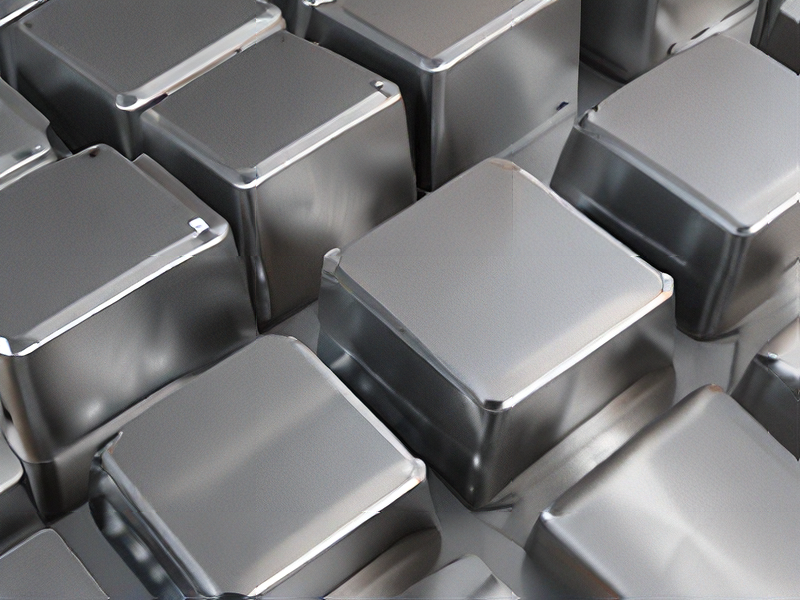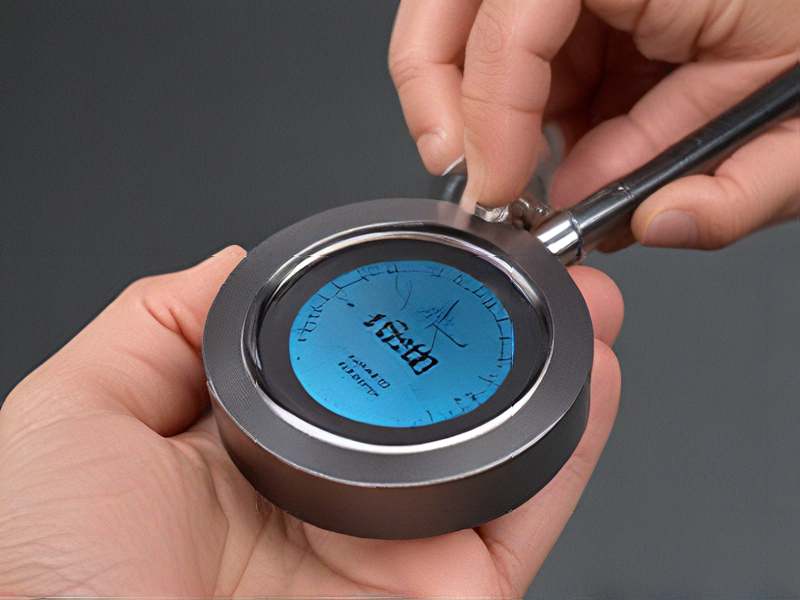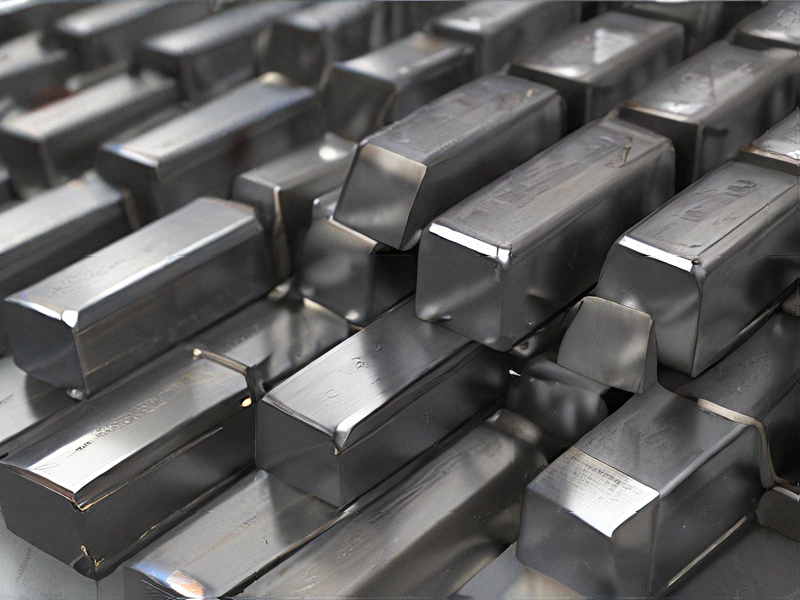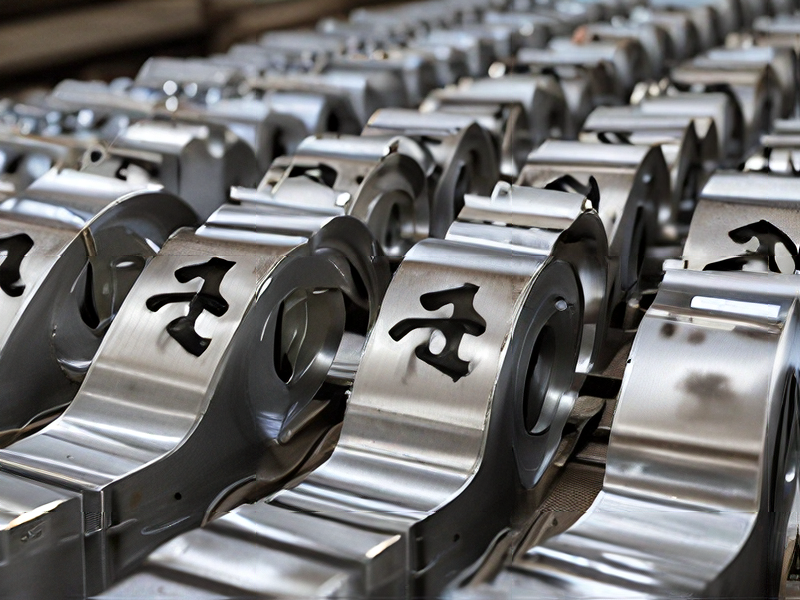Technology and Applications of 4130 metal
4130 steel, also known as Chromoly, is a low-alloy steel containing chromium and molybdenum. This alloy is renowned for its balance of strength, toughness, and weldability, making it a popular choice in various high-stress applications.
Technology
Properties:
– Strength and Toughness: 4130 steel offers high tensile strength (up to 560 MPa) and yield strength, making it suitable for demanding applications.
– Hardness and Wear Resistance: The chromium content enhances hardness and resistance to wear.
– Machinability: It is relatively easy to machine and can be welded with appropriate techniques.
– Heat Treatability: 4130 steel can be heat-treated to further improve its mechanical properties, such as hardness and strength.
Forming Techniques:
– Welding: Gas tungsten arc welding (GTAW or TIG) and gas metal arc welding (GMAW or MIG) are commonly used.
– Forging: 4130 can be forged to create components with complex shapes.
– Machining: Standard machining processes like drilling, milling, and turning are applicable.
Applications
Aerospace:
– Aircraft Structures: Used in airframes, landing gear, and other structural components due to its strength-to-weight ratio.
– Engine Components: Suitable for high-stress parts within engines.
Automotive:
– Roll Cages and Chassis: Favored in racing and custom car fabrication for its durability and lightweight characteristics.
– Drive Shafts and Axles: Ideal for parts requiring high strength and fatigue resistance.
Industrial:
– Tooling and Machinery: Used in the manufacturing of industrial tooling, machinery, and heavy equipment due to its toughness and wear resistance.
– Oil and Gas: Employed in drill bits, pumps, and other equipment that must withstand harsh conditions.
Sports and Recreation:
– Bicycles: Popular in high-performance bicycle frames, combining strength and lightness.
– Motorsports: Utilized in the construction of high-performance motorbike frames and components.
In summary, 4130 steel’s unique combination of strength, toughness, and versatility makes it indispensable across various industries, from aerospace to sports equipment, highlighting its significant technological and practical value.

Quality Testing Methods for 4130 metal and how to control quality
For quality testing of 4130 steel, several methods ensure its structural integrity and performance:
1. Chemical Composition Analysis: Verify the alloying elements (e.g., chromium, molybdenum) through spectrometric analysis to ensure they meet specifications.
2. Mechanical Testing: Conduct tensile tests to assess the material’s strength, ductility, and toughness. This helps ensure it can withstand intended mechanical stresses.
3. Hardness Testing: Use methods like Rockwell or Brinell hardness tests to measure the material’s hardness, which correlates with its strength and wear resistance.
4. Microstructure Examination: Evaluate the microstructure through metallographic analysis to ensure it meets specified grain size and distribution requirements.
5. Non-Destructive Testing (NDT): Employ techniques such as ultrasonic testing or magnetic particle inspection to detect internal defects without damaging the material.
To control quality:
– Supplier Qualification: Ensure suppliers meet quality standards and provide certified materials.
– Process Control: Monitor manufacturing processes rigorously to maintain consistency in material properties.
– Quality Assurance Testing: Implement regular testing at various stages of production to identify deviations early.
– Documentation and Traceability: Maintain comprehensive records to trace materials back to their source and track any issues that arise.
By adhering to these methods and controls, manufacturers can ensure that 4130 steel meets required specifications for applications ranging from aerospace components to automotive parts.

Tips for Procurement and Considerations when Purchasing from 4130 metal
When procuring 4130 steel, consider these key tips and considerations:
1. Material Specifications: Verify the specific requirements of your project. 4130 steel is known for its strength and toughness, making it suitable for applications like aircraft components and structural uses.
2. Quality Assurance: Ensure suppliers adhere to recognized standards (e.g., ASTM A519 for seamless tubing). Request material certifications to confirm compliance with mechanical properties and chemical composition.
3. Supplier Reputation: Choose reputable suppliers known for reliability and quality assurance. Check reviews and customer feedback to gauge their track record.
4. Cost and Value: Balance cost with quality. Cheaper options may compromise on material integrity, affecting performance and durability.
5. Lead Times and Availability: Confirm lead times to align with project schedules. Check availability to avoid delays due to shortages.
6. Processing and Machining: Understand machining requirements and the material’s machinability. 4130 steel can be challenging to weld, requiring expertise for proper processing.
7. Testing and Inspection: Consider non-destructive testing (NDT) or other inspection methods to ensure material integrity, especially for critical applications.
8. Environmental Factors: Evaluate environmental conditions impacting material performance, such as corrosion resistance requirements.
9. Regulatory Compliance: Verify compliance with industry regulations and standards applicable to your sector.
10. Long-Term Support: Assess supplier capabilities for ongoing support, including replacement parts and technical assistance.
By considering these factors, you can effectively procure 4130 steel that meets your project’s needs for strength, durability, and reliability.

FAQs on Sourcing and Manufacturing from 4130 metal in China
FAQs on Sourcing and Manufacturing from 4130 Metal in China
1. What is 4130 metal?
4130 metal, also known as Chromoly, is a low alloy steel containing chromium and molybdenum, making it highly durable and resistant to stress and heat.
2. Why source 4130 metal from China?
China offers competitive pricing, extensive manufacturing capabilities, and a well-established supply chain for 4130 metal, making it a cost-effective option.
3. How can I find reliable suppliers in China?
Use platforms like Alibaba, Global Sources, or Made-in-China. Verify suppliers through third-party audits, customer reviews, and certifications like ISO 9001.
4. What should I consider when choosing a supplier?
Consider the supplier’s experience with 4130 metal, production capacity, quality control processes, lead times, and pricing. Visiting the factory can provide additional assurance.
5. What are common applications of 4130 metal?
4130 metal is used in aerospace, automotive, bicycle frames, and high-performance machinery due to its strength and lightweight properties.
6. What are the quality standards for 4130 metal?
Ensure the supplier adheres to ASTM A29 or AMS 6345 standards, which specify the chemical composition and mechanical properties of 4130 metal.
7. How is the pricing of 4130 metal determined?
Pricing depends on factors such as the current market rate for raw materials, order quantity, processing requirements, and shipping costs.
8. What are the payment terms typically offered?
Common payment terms include a 30% deposit upfront with the balance paid before shipment. Letters of credit (LC) are also widely used for large orders.
9. How do I ensure quality control?
Implement a quality assurance process that includes pre-production samples, in-process inspections, and final product testing. Engage third-party inspection services if necessary.
10. What are the shipping options from China?
Shipping options include air freight for faster delivery and sea freight for cost efficiency. Ensure proper packaging to prevent damage during transit.
11. Are there any import regulations for 4130 metal?
Check your country’s import regulations regarding duties, tariffs, and certification requirements to ensure compliance and avoid delays.
12. How can I manage communication with Chinese suppliers?
Maintain clear and consistent communication through email, video calls, and instant messaging apps like WeChat. Employing a bilingual representative can also facilitate smoother interactions.

